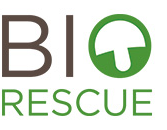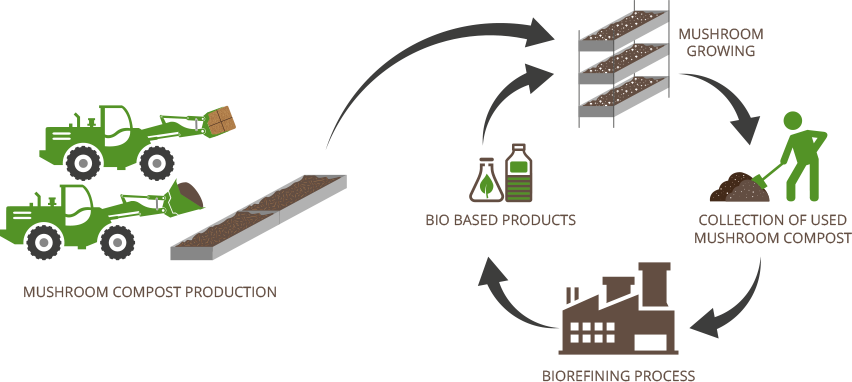Project
About the project
To satisfy consumer demand for mushrooms, European farmers use over three million tonnes of compost each year. Though the compost contains valuable organic components, it is only suitable for one to three mushroom harvests, and disposing of it creates significant economic and logistical problems for Europe’s farmers –
Objectives
The BIOrescue project aims to provide a solution by creating a novel biorefinery concept for mushroom compost, transforming it into valuable bio-based products such as bio-pesticides, biodegradable nano-carriers for drug or fertiliser encapsulation, and bio-based horticultural fertilisers.
The concept will be developed for a conventional mushroom farm in Ireland that will be retrofitted to become a sustainable and efficient biorefinery. To strengthen the competitiveness of the novel biorefinery concept, project partners will conduct economic and environmental impact assessments of the newly developed processes and bio-based products.

